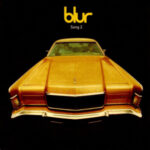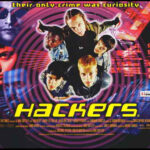 Fugazi, the iconic post-hardcore band hailing from Washington D.C., stands as a testament to the power of DIY ethics, political consciousness, and innovative music. Formed in 1987, Fugazi is known for their intense live performances, genre-defying sound, and staunchly independent approach to the music industry. Their influence extends far beyond their discography, impacting the broader landscape of punk and alternative music.
Fugazi, the iconic post-hardcore band hailing from Washington D.C., stands as a testament to the power of DIY ethics, political consciousness, and innovative music. Formed in 1987, Fugazi is known for their intense live performances, genre-defying sound, and staunchly independent approach to the music industry. Their influence extends far beyond their discography, impacting the broader landscape of punk and alternative music.
Formation and Early Years (1986-1989)
The seeds of Fugazi were sown in the mid-1980s. After the dissolution of his previous band, Minor Threat, Ian MacKaye sought to form a new project that diverged from the hardcore punk sound. MacKaye teamed up with drummer Brendan Canty and bassist Joe Lally, and the trio began rehearsing together. The lineup was completed with the addition of guitarist/vocalist Guy Picciotto, who had previously played with the band Rites of Spring.
From the outset, Fugazi was committed to a DIY ethos. They booked their own shows, often at unconventional venues, and maintained control over their music and merchandising. This approach was emblematic of their broader philosophy, which emphasized artistic integrity and resistance to commercial pressures.
Fugazi’s early sound was a blend of punk, hardcore, and experimental rock. Their debut EP, Fugazi (1988), showcased this eclectic mix, with tracks like “Waiting Room” and “Suggestion” becoming anthems of the underground scene. The follow-up EP, Margin Walker (1989), continued to refine their sound and expand their audience.
Breakthrough and Consolidation (1990-1993)
Fugazi’s first full-length album, Repeater (1990), was a critical and commercial success. It solidified their reputation as one of the most important bands of the era, and tracks like “Merchandise” and “Repeater” became staples of their live shows. The album’s raw energy and politically charged lyrics resonated with a generation disillusioned by mainstream culture and politics.
Following the success of Repeater, Fugazi embarked on extensive tours across the United States and Europe. Their live performances were characterized by their intensity and unpredictability, with MacKaye and Picciotto often engaging in physical, almost confrontational, interactions with the audience. Fugazi’s commitment to affordable ticket prices and all-ages shows further endeared them to their fanbase.
In 1991, Fugazi released Steady Diet of Nothing, a more introspective and experimental album. While not as immediate as Repeater, it demonstrated the band’s willingness to evolve and challenge themselves. Tracks like “Long Division” and “Reclamation” showcased their ability to blend aggression with melody and thoughtful lyricism.
Creative Peak and Political Engagement (1993-1998)
Fugazi’s third album, In on the Kill Taker (1993), marked a creative peak for the band. Recorded with producer Steve Albini, the album featured a more abrasive and chaotic sound, with tracks like “Facet Squared” and “Public Witness Program” highlighting their sonic experimentation. The album’s release coincided with a period of increased political activism for the band, with MacKaye and Picciotto speaking out on issues such as corporate greed, environmental destruction, and social justice.
In 1995, Fugazi released Red Medicine, an album that further pushed the boundaries of their sound. Incorporating elements of dub, noise rock, and ambient music, Red Medicine was both challenging and rewarding for listeners. The album’s lyrical themes reflected the band’s disillusionment with the music industry and mainstream culture, with tracks like “Do You Like Me” and “Bed for the Scraping” addressing these concerns head-on.
Fugazi continued to tour relentlessly, bringing their message and music to audiences around the world. Their live shows became legendary for their intensity and unpredictability, with the band often playing for hours without a setlist. This period also saw the release of Instrument (1998), a documentary directed by Jem Cohen that offered a glimpse into the band’s creative process and touring life.
Later Years and Hiatus (1999-2003)
Fugazi’s final studio albums, End Hits (1998) and The Argument (2001), showcased a band that was still evolving and experimenting with their sound. End Hits featured a more polished production and a greater emphasis on melody, while The Argument incorporated elements of folk, jazz, and classical music. Tracks like “Cashout” and “Epic Problem” demonstrated the band’s continued commitment to addressing social and political issues through their music.
Despite their success and critical acclaim, Fugazi remained fiercely independent. They continued to release their music through MacKaye’s label, Dischord Records, and maintained their DIY approach to touring and merchandising. This commitment to independence was a defining characteristic of the band and set them apart from many of their peers.
In 2003, Fugazi announced an indefinite hiatus, citing a desire to focus on their personal lives and other projects. While the band has not officially disbanded, they have not released any new music or performed live since then. Despite this, their influence and legacy continue to be felt in the punk and alternative music scenes.
Legacy and Influence
Fugazi’s impact on the music world is immeasurable. Their commitment to artistic integrity, political consciousness, and DIY ethics has inspired countless bands and musicians. Fugazi’s influence can be seen in the work of bands like Refused, At the Drive-In, and Shellac, as well as in the broader post-hardcore and indie rock genres.
Fugazi’s approach to music and activism has also had a lasting impact on the broader cultural landscape. Their refusal to conform to industry standards and their commitment to addressing social and political issues through their music set a precedent for future generations of artists. Fugazi’s legacy is not just one of musical innovation, but also of resistance and defiance in the face of commercial pressures and societal injustices.
Discography
Studio Albums
- Repeater (1990)
- Steady Diet of Nothing (1991)
- In on the Kill Taker (1993)
- Red Medicine (1995)
- End Hits (1998)
- The Argument (2001)
EPs
- Fugazi (1988)
- Margin Walker (1989)
Live Albums
- Fugazi Live Series (2004-present)
Compilations
- 13 Songs (1989)
- Instrument Soundtrack (1999)
Conclusion
Fugazi’s history is one of relentless innovation, unyielding independence, and unwavering commitment to social and political issues. Their music continues to resonate with audiences around the world, and their legacy as one of the most important bands in the history of punk and alternative music is secure. Fugazi’s influence can be seen not just in the bands they inspired, but in the broader cultural movement they helped to shape. Their story is a testament to the power of music as a force for change and a reminder of the importance of staying true to one’s principles in the face of adversity.
This post has already been read 455 times!








